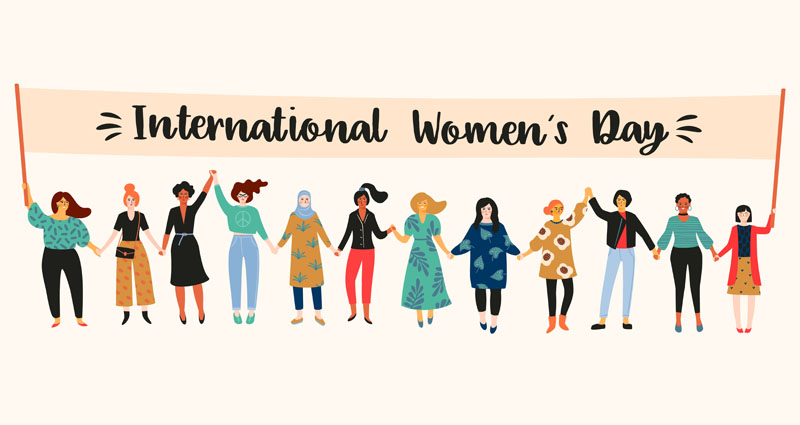By Sophia Lashmar, Year 11
In celebration of this year’s International Women’s Day, LGB did make an effort to not let the day go unmarked. Although it has been said by many students that perhaps the school should not have tried to do anything in the first place. Instead of celebrating women and their place in society, we only managed to highlight stereotypes and start discussions that denigrate women, rather than celebrate them.
This being said, High School’s Flame Stuco did make a small gesture to celebrate the occasion, in launching an Instagram campaign, taking photos with different students around campus, holding a sign that read ‘I love women’. While this is admirable, and far more successful than the Administration’s attempt to commemorate the day, still more could have been done.
Many students’ voices , especially female students’, go unheard at LGB. Whilst encouraging all students to speak out, teenage girls often seem to do the opposite, fearing their opinions will not be respected.
When asked how they felt about how the school recognised International Women’s Day, LGB students’ responses were mixed, with some saying that the celebrations were “non existent”, that the day “wasn’t recognised in the slightest” and “more could’ve been done”. Others felt that it would have been better not to try and commemorate the day at all, saying “ it was useless, many boys were just laughing and not taking it seriously”. One female student said “I was disappointed by the reactions of some of the guys in my mentor – it felt like they didn’t care at all”.
However, when male students were asked how they felt women and girls were treated at LGB, one said he felt it was “equal”. How could the above be said as equal? If the treatment were equal, we would not have been discussing male and female stereotypes in mentor class, boys would not have been laughing at the concept of feminism, nor at discussions around harassment, assault and body shaming. How could anyone’s understanding of ‘equal’ apply to this situation?
It gets worse, as when students were asked if they themselves had experienced any sexism at LGB, many had a lot to say. This is not to say that all female and male students have experienced sexism at school, but those who chose to speak up had plenty to share.
When asked, male students said that yes, there was sexism “among friend groups, although it’s usually meant as jokes”. While admirable for sharing this insight, sexist jokes, even among friends, are still sexist. When jokes are made around this subject, it is all too close to reality. Even today, Switzerland has one of the highest gender pay gaps in Europe, with women getting paid 18.4% less than men for doing the same jobs. How could students be laughing at jokes like this? We as students should be working together towards having discussions and making changes in our school community, not making fun of a desperately unjust situation.
Another male student said that he himself had not seen any overt sexism at LGB, but had “seen some transphobia”. What this suggests is that we as students are not having enough informed discussions and teaching around the subjects of inclusivity and discrimination. What teaching we have received in mentor classes is but an afterthought, especially in Year 11, when students were asked to list words they associated with men and women. The issue with this is at the end of the class, the stereotypes students had written down were read out by the teacher, and not even discussed. In this, an activity intended to celebrate International Women’s Day ended up celebrating harmful stereotypes and reinforcing them.
Girls at LGB also had experiences of sexism to share, with one student saying that “boys laughed at me for playing football with them, even before the game had started”. Another student was the subject of sexism when “this guy told me to go back to the kitchen and then was like calm down, it’s a joke”. Another student shared experiences from class, where a boy argued that “when people are scared, they look to a strong man to lead”.
When will this stop? When will we start having discussions about this, actually run by professionals and explained to students until it is understood? Sexism is an issue, not a joke. It’s 2023, but still we are being told we belong in the kitchen, not at school. The overwhelming reaction to this International Women’s Day was not one of celebration, but of disappointment. We, students at a school whose charter reads that we are “ based on the principles of equality and solidarity among all peoples and of the equal value of all human beings without any distinction of nationality, race, sex, language or religion”. We, students at such a school, should expect better from our community. Even if the school made an effort on March 8th, every day should be a day that we are respected, included and celebrated for who we are, and for the value we have in our school.



